#Camp David Accords
Text

45 years ago today: On September 17th, 1978, the Camp David Accords, a pair of political agreements between Israel and Egypt, were signed by Egyptian President Anwar Sadat and Israeli Prime Minister Menachem Begin. The following year, this led to a peace treaty between the two countries.
This was a significant moment in the history of the region.
StandWithUs
31 notes
·
View notes
Text
Egypt threatens to suspend key peace treaty if Israel pushes into Rafah | National Post
#free palestine#free gaza#egypt#Camp David Accords#fuck isreal#from the river to the sea palestine will be free#rafah#khan younis#qatar#saudi arabia#israeli war crimes#this is not war this is genocide
14 notes
·
View notes
Note
Any books you'd particularly recommend outside of US/Presidential history?
I always will take opportunities like this question to recommend Charles Emmerson's 2019 book, Crucible: The Long End of the Great War and the Birth of a New World, 1917-1924 (BOOK | KINDLE). I know it'll sound like hyperbole, but I am not exaggerating: it's one of the best books I've ever read, if not the best. It has stayed with me ever since I finished it, largely because of how absolutely riveting Emmerson's writing style is. I don't know if I've ever read a single book that has told so many incredible stories about so many remarkable people and so many fascinating places. And it does so without ever losing its overall focus or confusing the reader. I love this book and every time I see it on one of my bookshelves I get jealous that I can't read it for the first time over-and-over again.
Another book that immediately comes to mind is Lawrence Wright's Going Clear: Scientology, Hollywood, and the Prison of Belief (BOOK | KINDLE), which I'm sure many others would back me up on. I'm a huge fan of all of Lawrence Wright's work, so you can't go wrong with any of his other books, particularly The Looming Tower: Al-Qaeda and the Road to 9/11 (BOOK | KINDLE) and The Terror Years: From Al-Qaeda to the Islamic State (BOOK | KINDLE), both of which are journalism at its very best. And I understand you asked about books that didn't have anything to do with the Presidency, but it would be criminal if I didn't also suggest Wright's excellent history of the 1978 Camp David Accords between Israel and Egypt, Thirteen Days in September: Carter, Begin, and Sadat at Camp David (BOOK | KINDLE). The difficult peace negotiations between President Carter, Israeli Prime Minister Menachem Begin, and Egyptian President Anwar Sadat are detailed so intimately that Wright originally began writing it as a play, and the storytelling remains just as vivid as if it were being performed on a stage.
By no means is that a complete list of suggestions, but those are the first books that came to mind when reading your question. But, seriously, don't hesitate to read Charles Emmerson's Crucible ASAP!!!
#Books#History#History Books#Reading#Book Suggestions#Book Recommendations#Crucible#Charles Emmerson#Crucible: The Long End of the Great War and the Birth of a New World#PublicAffairs#Lawrence Wright#The Looming Tower#Going Clear#The Terror Years#Thirteen Days in September#The Looming Tower: Al-Qaeda and the Road to 9/11#The Terror Years: From Al-Qaeda to the Islamic State#Camp David Accords#Scientology#President Carter#Menachem Begin#Anwar Sadat#Al-Qaeda#Larry Wright#Knopf#Alfred A. Knopf
28 notes
·
View notes
Text
THE DAY THEY SIGNED THE CAMP DAVID
JERUSALEM, March 13, 1979
I had been living in Jerusalem for under three months when the the Camp David Accords were signed in Jerusalem. Although they had been finalized on September 17, 1973, these were the “real” signatures because Jerusalem isn’t just any old city. It was special. Then, now, forever.
I watched Menachem Begin, Anwar Sadat and Jimmy Carter sweep by in huge official cars…
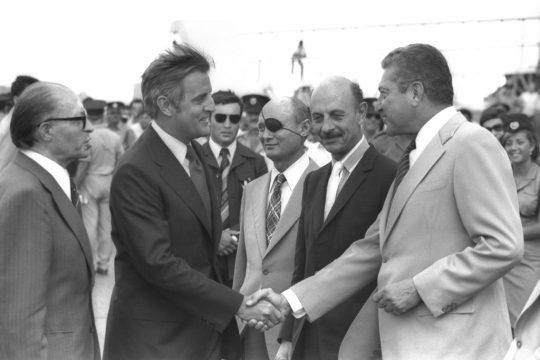
View On WordPress
0 notes
Text
would you apply?

14 notes
·
View notes
Text
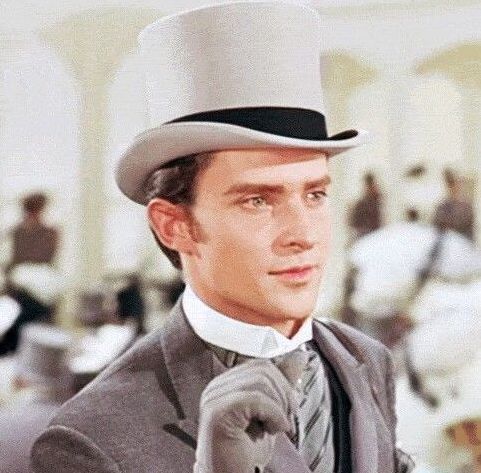
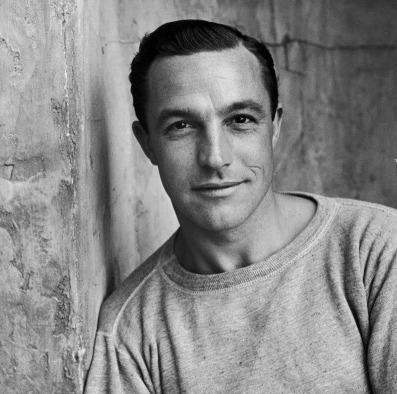
Propaganda
Jeremy Brett (My Fair Lady)—"...he was beautiful. A strange adjective to use in describing a man. I use it not to suggest effeminacy or a kind of male prettiness, but in the same way I would use it to describe a throughbred stallion, Michelangelo's David or Gershwin's Rhapsody in Blue. There was with Jeremy Huggins [Brett's non- stage name] a perfection and sublime symmetry in his features that was beautiful." [quote from "Bending the Willow" by David Stuart Davies]
Gene Kelly (Singin’ in the Rain, An American in Paris, The Pirate)—It’s hard to know where to start with Gene Kelly because he did so, so much, of such a high quality, from the ballet scenes in “An American in Paris” to the classy suave movie star act of “Singin’ in the Rain” to the incredibly camp, sexy “The Pirate”. He just never stopped finding cool ways to do things and he’s just brilliant to watch, especially when he’s dancing, but even when he’s doing drama or being silly! He’s one of those guys who could genuinely do it all and just radiates charisma through the screen, literally an #icon in every sense of the word.
This is round 4 of the bracket. All other polls in this bracket can be found here. Please reblog with further support of your beloved hot sexy vintage man.
[additional propaganda submitted under the cut.]
Jeremy Brett propaganda:
"according to critic Kenneth Tynan a 'too beautiful' Hamlet."


“Please take my humble offering of propaganda for bisexual icon ✨️Jeremy Brett✨️ and his early career!"
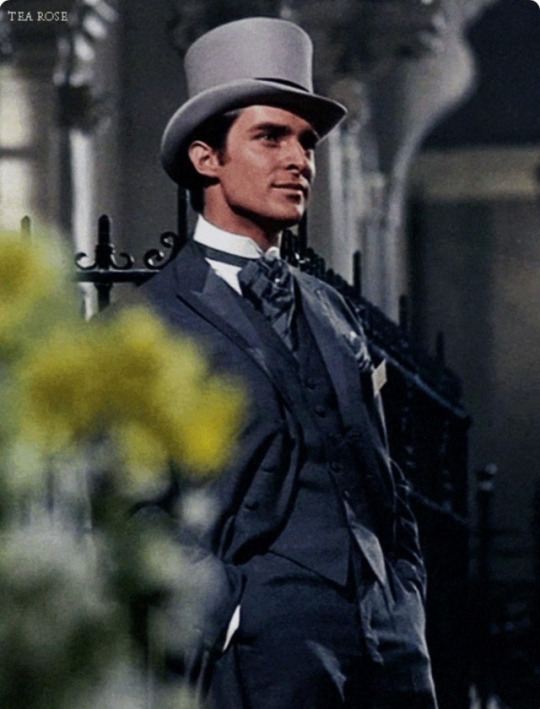
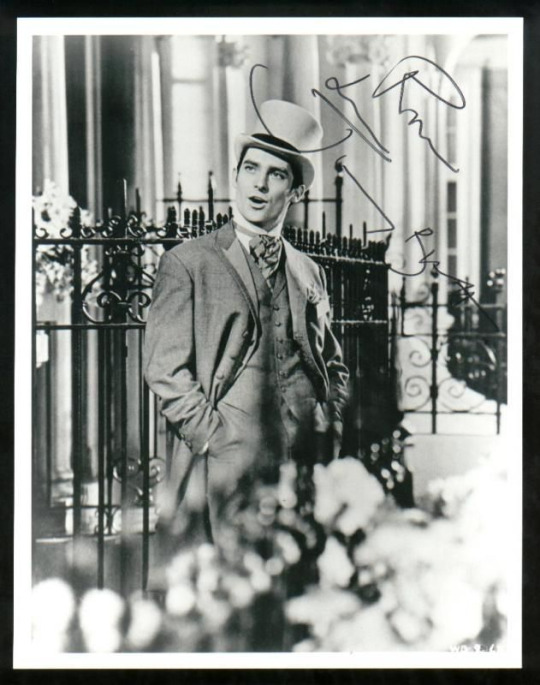
"he’s such a himbo sunshine boy in my fair lady"

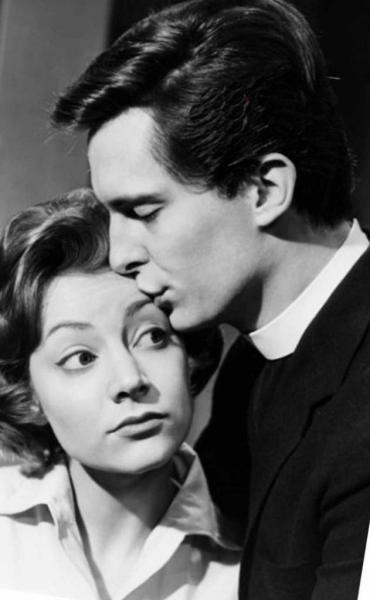
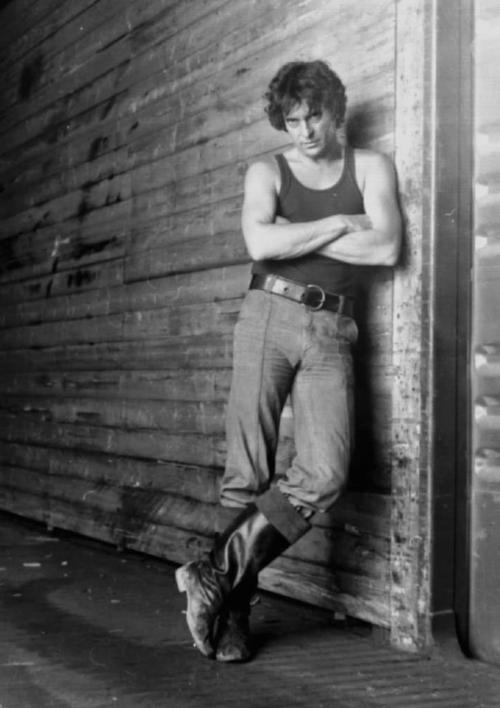
“not technically propaganda because it won’t let me save the images but just found out my bi king jeremy brett played patroclus https://www.jeremy-brett.fr/crbst_183.html and also apparently dorian gray in the 60s and basil hallward in the 70s?? range.”
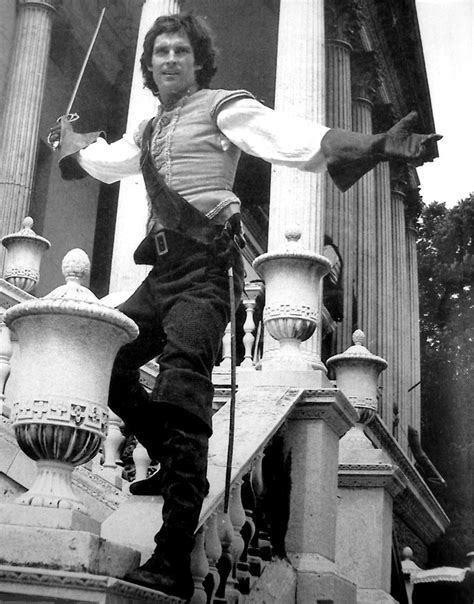
"...as a dashing D'Artagnan in The Three Musketeers (1966/67) (Duelling is no problem! XD)”
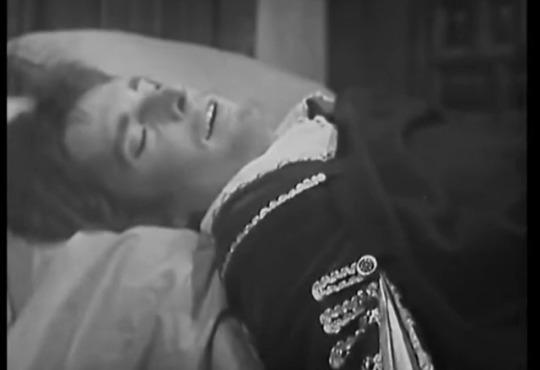
“dropping to sleep - Jeremy is far too handsome to play d'art and also too tall, lol”
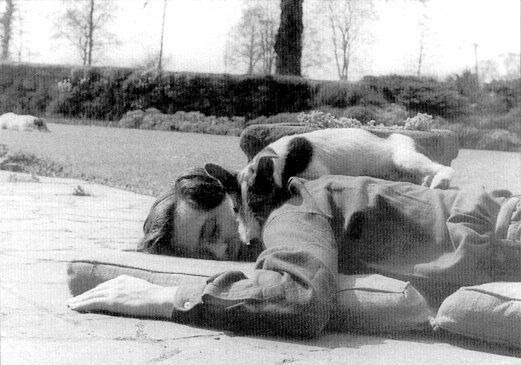
Gene Kelly propaganda:
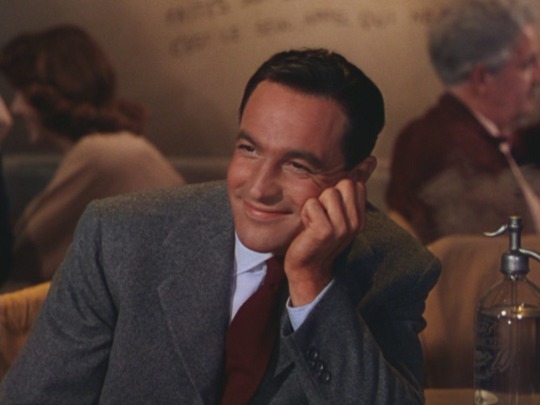
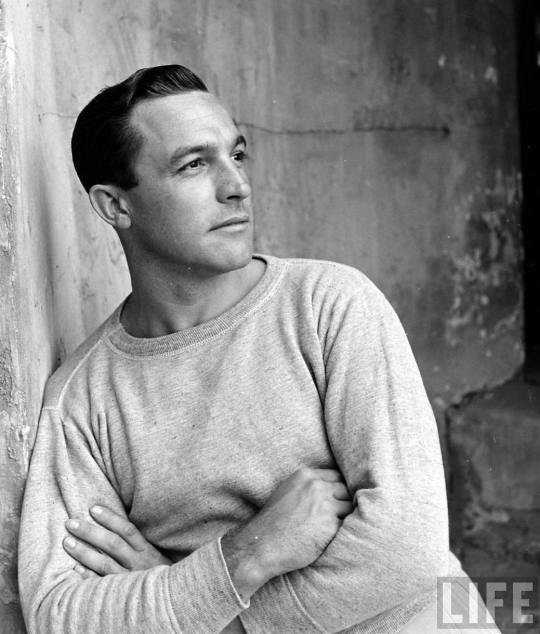
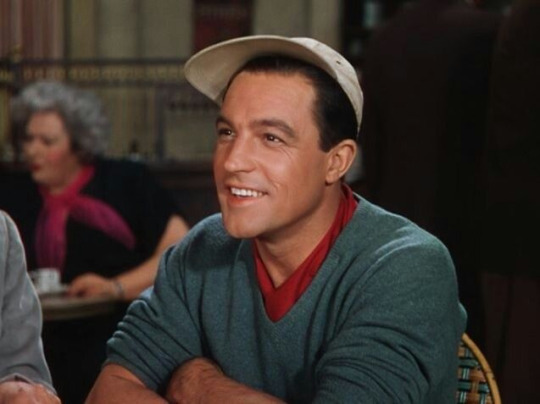
youtube
youtube

youtube
"he was genuinely kind and supportive to judy garland when she was going through a rough time. she was having heavy trauma/addiction responses in 'Summer Stock' which led to her being late all the time and being too scared to come on set, and he actually faked twisting his ankle to distract everyone from her and give her some time off! so yeah, maybe he was a hardass, but when his friend needed him he was 100% there for her, and I think that's worth noting."
#gene kelly#jeremy brett#hotvintagepoll#fuck that old man#round 4#sherlock holmes vs—no i shant say it
3K notes
·
View notes
Text
A Jewish prayer shawl worn by Levi Simon, a British man fighting for the Israeli army in Gaza who filmed himself rummaging through women’s underwear in an abandoned Palestinian home, belonged to a celebrated Holocaust survivor who warned of the dangers of hatred and racism.
Social media footage posted in November shows Simon wearing the shawl, known as a tallit, in a building in Gaza.
“This tallit I am wearing belonged to a Holocaust survivor by the name of Zigi. I am right now inside of Gaza writing ‘Am Yisrael Chai’ to make sure nothing like this will ever happen again,” Simon says in the clip, drawing a Star of David and writing the Hebrew phrase meaning “the people of Israel live” on the wall.
According to the accompanying text, the tallit was donated by the family of Zigi Shipper, a survivor of Auschwitz-Birkenau and other Nazi camps from Lodz, Poland, who moved to the UK after the Second World War and died last January aged 93.
But a close friend and fellow survivor told Middle East Eye he believed Shipper would have been "astounded and upset" to learn of the way in which his tallit had been used in Gaza.
“He would have been as heartbroken as I am because neither of us imagined anything like that would be witnessed by us,” Manfred Goldberg, who met Shipper in 1944 when both were working as slave labourers at a camp in modern-day Poland, told MEE.
Asked whether he would have been concerned by the conduct of Israeli forces, Goldberg added: “How can you ask such a question? Who is not upset? Zigi was a very outspoken person. He made a lot more noise than I did. He would have been beside himself.”
[...] “Zigi and I had an unbreakable bond because of our experience in the camps. I know him better than I know more or less any person on earth,” said Goldberg.
In his later life, Shipper was renowned for his decades of work promoting awareness of the Holocaust in countless talks to schoolchildren and through media interviews. In 2017, he was among 112 Holocaust survivors whose testimonies were recorded as part of a United Kingdom Holocaust Memorial project.
“I want young people to know, especially young people, what happened because of racism and most importantly, hatred,” Shipper has been quoted as saying by the Holocaust Memorial Day Trust.
and, more on what simon has been posting . . .
In one clip, Simon waves an Israeli flag in a school where, he says, “they teach terrorism”, adding: “We’re here, we’re here to stay, we’re not going to take your terror, and they’re going to start teaching Hebrew in this school soon."
In another clip, he says he is going through “terrorist houses” looking for guns and explosives and then opens a drawer and starts pulling out and displaying women’s underwear, which he describes as "exotic lingerie".
. . . full article on MEE (26 Jan 2024)
1K notes
·
View notes
Text
Happy birthday, Mr. President
Happy birthday, Mr. President
(AP Photo/David Goldman, File)
Jimmy Carter turned 98 years of age the other day and I missed offering the good man a happy day … not that it really mattered to the nation’s 39th president.
I want to spend a moment or two, though, extolling the virtues of his presidency. It has become all too common over many years to look fondly on the post-presidential years of Carter’s life while dismissing…
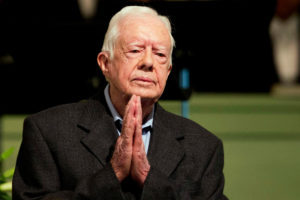
View On WordPress
0 notes
Text
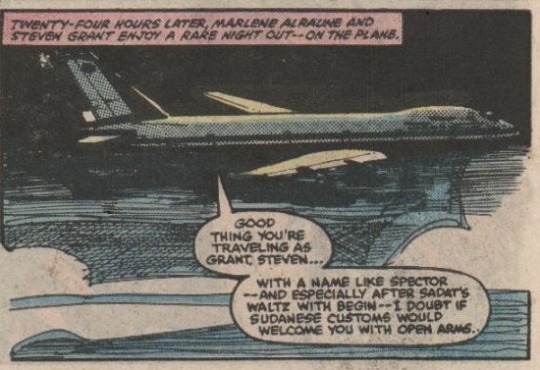
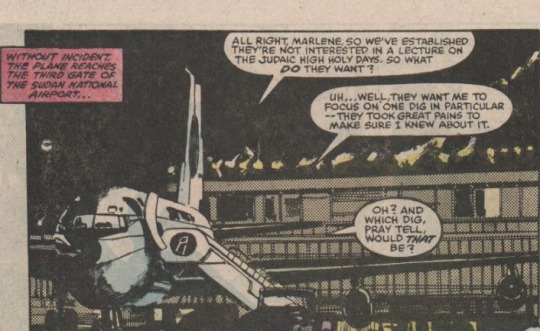
“Spirits in the Sand” Moon Knight (Vol. 1/1980), #28.
Writer: Doug Moench; Penciler and Inker: Bill Sienkiewicz; Colorist: Christie Scheele; Letterers: Joe Rosen and Rick Parker
#Marvel#Marvel comics#Marvel 616#Moon Knight vol. 1#Moon Knight 1980#Moon Knight comics#Marc Spector#Steven Grant#Marlene Alraune#Are they…referencing the Camp David Peace Accords??? And the Yom Kippur War????#Menachem Begin and Anwar Sadat???? in MY comic book???#I mean it’s interesting they chose to reference these events as opposed to the invasion of Southern Lebanon#which had begun only a couple months earlier but perhaps they were considering Sudan’s closer proximity to Egypt???#but anyway#!!!! indications that Marc is Jewish!!!#I always wondered when that was established
1 note
·
View note
Text
Hey, Hamas supporters. I know that you love to shriek about how Israel is "zionist" and a "terrorist" country, but are you aware that it had repeatedly offered peace deals with Hamas which were always rejected?
Since the beginning, Israel has always wanted to co-exist peacefully.
Israel accepted the UN resolution of making Jerusalem an international city without it being controlled by either nations. Palestine did not, which lead to the Arab-Israeli war.
The Peel Commission Plan of 1937. It was offered by Israel, but rejected by Palestine.
The Oslo Accords of 1993: Well, Palestine agreed to accept it, but did not fully implement their commitments, but it's essentially the same thing.
At the Camp David Summit in 2000.
The Trump Administration Peace Plan in 2020.
Oh, and they rejected a cease-fire literally three days ago or so.
But yeah, according to bigots like you, it's Israel that is fault at here. So much for liberals claiming to fight for "human rights" and "equality".
#israeli#israel palestine conflict#i stand with israel#arab israeli conflict#israel#genocide#isreal#gaza#free gaza#anti zionisim#free palestine#palestine#palestine genocide#rafah#ghazza#hamas war crimes#hamas attack#israel hamas war#hamas massacre#free plaestine#hamas#hamas is isis#anti semitism
229 notes
·
View notes
Text
The demand that Egypt take in 2.2 million refugees from Gaza in furtherance of Israel’s completion of the Nakba is not only immoral, but logistically infeasible as well. On October 24th, a document (currently being circulated by Israeli Intelligence Minister Gila Gamliel) was leaked to the Israeli news site Calcalist. It detailed Israeli plans for the forced transfer of Palestinians in Gaza to the Sinai peninsula as a culmination of Israel’s genocidal purge of the Strip. Pressure on the Egyptian government to take in the exodus of refugees is already underway, with unsubstantiated reports in regional press stating that the U.S. is prepared to offer Egypt some significant debt relief in exchange for hosting a large number of refugees in Sinai.
Egypt is currently facing a historic debt crisis; Bloomberg Economics ranked Egypt as second only to Ukraine in terms of countries most vulnerable to defaulting on debt payments. The Egyptian debt crisis has been little-discussed in the West, but it is a daily reality for Egyptians, who continue to face mounting inflation and unparalleled price hikes as a result of Egypt’s complete reliance on international lending from the IMF and wealthy Gulf states. Such reliance circumscribes Egypt’s range of action, making it difficult and unlikely for it to act independently from U.S. interests—including on foreign policy.
This wouldn’t be the first time the U.S. has used the prospect of debt forgiveness as a tool to bring Egypt in compliance with its policy demands. Most recently, in 1991, the United States and its allies forgave half of Egypt’s external debt ($11.1 billion USD, out of $20.2 billion) in exchange for Egypt’s participation in the second Gulf War in the anti-Iraq coalition. The precedent for 1991 however, was the 1978-1979 Camp David accords—Anwar Sadat’s infamous normalization treaty with Israel under the auspices of the U.S., which saw Sadat break with the anti-colonialism of his predecessor Gamal Abdel Nasser. In the post-Camp David period, Egypt became a creditworthy state for Western governments and Western-backed international institutions, both of which increased economic and military lending. The upshot was the further cementing of Sadat’s move away from the self-sufficient autonomy of Nasser’s regime.
191 notes
·
View notes
Text
A Palestinian man from the Shuafat refugee camp was beaten up by Israeli forces who then seared the Star of David on his cheek, Israeli media reports show.
The Palestinian man, who has not been named publicly, was arrested on Wednesday and was suspected by Israeli police of drug trafficking offences, Ynet reported.
Exactly 16 police officers were present at the arrest, and "none of their body cameras were working", Ynet reported.
196 notes
·
View notes
Note
Did you read any of those three Carter biographies ("His Very Best: Jimmy Carter, A Life", "President Carter: The White House Years", and "The Outlier: The Life and Presidency of Jimmy Carter") that came out within the last few years? If so, which was your favorite/which do you recommend? I have usually heard Jonathan Atler's is the definitive Carter biography these days.
I still have not gotten around to reading Kai Bird's The Outlier: The Unfinished Presidency of Jimmy Carter (BOOK | KINDLE), but I've been meaning to do so. Kai Bird does great work and his biographies of J. Robert Oppenheimer (American Prometheus -- the basis of Christopher Nolan's next film) about and Robert Ames (The Good Spy) are both must-reads.
I have read the other two books that you mentioned and they are both excellent. I'd agree that Jonathan Alter's book, His Very Best: Jimmy Carter, A Life (BOOK | KINDLE), is the best biography of Carter that I've come across. It's also a true biography that covers Carter's entire life.
Stuart E Eizenstat's President Carter: The White House Years (BOOK | KINDLE) is also very good. While Alter's book might be the definitive biography of Carter's full life, Eizenstat's book is arguably the definitive book on Carter's Presidency. Eizenstat focuses strictly on Carter's 1976 election, single term as President, and unsuccessful bid for reelection in 1980. Eizenstat goes deep inside the Carter White House and spends 1,024 pages covering no more than a five-year period of Carter's political life, so there's a remarkable level of insider knowledge, extensive research and impressive detail in his book.
One other book that I'd suggest checking out if you're interested in Jimmy Carter's time as President is Lawrence Wright's 2014 book, Thirteen Days in September: Carter, Begin, and Sadat at Camp David (BOOK | KINDLE). It's not solely about President Carter, but he's obviously one of the main characters as he hosted Egyptian President Anwar el-Sadat and Israeli Prime Minister Menachem Begin and helped negotiate the historic Camp David Accords. Lawrence Wright is one of my all-time favorite writers and this book is packed with high stakes, tons of drama, and extremely fascinating characters, particularly Sadat. It's also an interesting look at the little-known but highly significant role that First Lady Rosalynn Carter played in helping hold the negotiations together when things got tense between the principals. Like I said, Carter is not the main focus of the book, but it's such an incredible read and it is the story of one of the most important and lasting accomplishments of Carter's Presidency.
#Books#Jimmy Carter#President Carter#Carter Administration#1976 Election#1980 Election#History#Presidential Politics#Presidents#White House#Kai Bird#The Outlier: The Unfinished Presidency of Jimmy Carter#Jonathan Alter#His Very Best: Jimmy Carter A Life#Stuart E. Eizenstat#President Carter: The White House Years#Thirteen Days in September#Camp David Accords#Lawrence Wright#Menachem Begin#Anwar el-Sadat#Rosalynn Carter#Book Suggestions#Book Recommendations#Books About Presidents#Presidential Biographies
12 notes
·
View notes
Text
A DAY THEY SIGNED THE CAMP DAVID ACCORDS IN JERUSALEM
JYProvocative Question #7 – Hard Posts – Addendum
I was living in Jerusalem when the the Camp David Accords were finalized and formally signed. I watched Menachem Begin, Anwar Sadat and Jimmy Carter sweep by in huge official cars surrounded by every sniper from three armies. You could see them on the rooftops, between buildings, pretending to be tourists — but you can always tell who they are.…
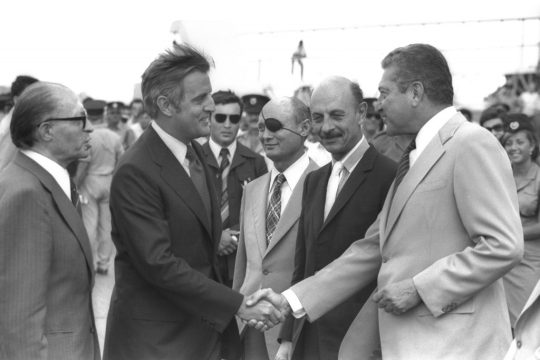
View On WordPress
1 note
·
View note
Text
Hey check this out
I was making a zine (solarpunk ofc) and decided to use a bunch of old National Geographic magazines to cut up and use in a scrappy diy scrapbook fashion and of course I started reading them. This one in particular:
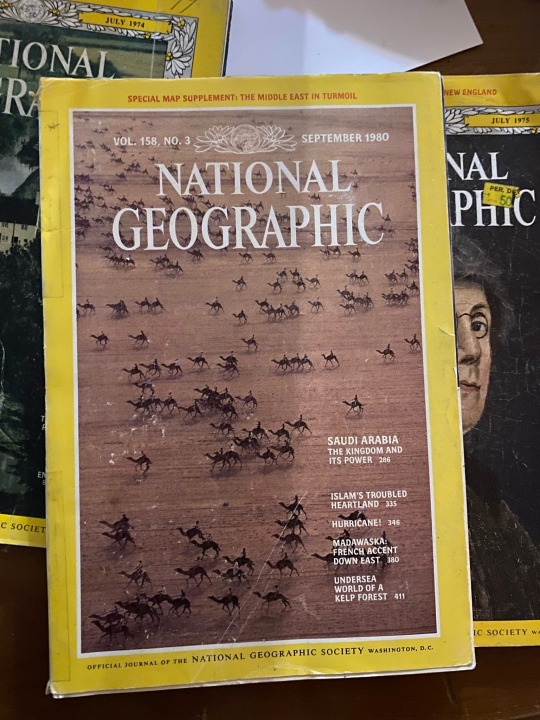
It caught my eye because it’s from September 1980 & talks about the Middle East. My brain wonders if they mention Palestine and they do! I copied the text for accessibility, but I put pictures at the end of the original pages.
“Jerusalem: reunited or occupied? The question has divided the city's 400,000 Jews and 100,000 Arabs since Israel annexed East Jerusalem in 1967.
BEIRUT, JANUARY 1975. Armed soldiers lead me through labyrinthine back streets, up a dark stairway to a midnight rendez-vous. Only a bare bulb lights the temporary command post; Yasir Arafat, chairman of the Palestine Liberation Organization, seldom dares spend two days in the same place. “Our argument is not with the Jews” He tells me. "We are both Semites. They have lived with us for centuries. Our enemies are the Zionist colonizers and their backers who insist Palestine belongs to them exclusively.
We Arabs claim deep roots there too."
Two decades ago Palestinians were to be found in United Nations Relief Agency camps at places like Gaza and Jericho, in a forlorn and pitiable state. While Palestinian spokesmen pressed their case in world cap-itals, the loudest voice the world heard was that of terrorists, with whom the word Palestinian came to be associated. Jordan fought a war to curb them. The disintegration of Lebanon was due in part to the thousands of refugees within its borders.
Prospects for peace brightened, however, when President Anwar Sadat of Egypt, most powerful of the Arab countries, made his historic trip to Israel in November 1977. A year later Sadat and Israeli Prime Minister Menachem Begin signed the Camp David accords, a framework for the return of the occupied Sinai Peninsula to Egypt.
The former enemies established diplomatic relations and opened mail, telephone, and airline communications.
The Camp David accords also addressed the all-important Palestinian question but left it vague. Sadat insists that any lasting peace depends on an eventual Palestinian homeland in the Israeli-occupied West Bank and Gaza. Israel agrees to limited autonomy for those regions, but, fearful of a new and hostile Palestinian state suddenly planted on its borders, insists that Israeli troops must maintain security there.
Crowded Rashidiyah refugee camp, set among orange groves south of the ancient Phoenician port of Tyre in Lebanon, lies on the front lines. Frequent pounding by Israeli military jets and warships seeking PLO targets has war-hardened its population, some 13,700 Palestinians.
At the schoolyard I watched a solemn flag raising. Uniformed ashbal, or lion cubs, stood rigid as color guards briskly ran up the green-white-and-black Palestinian flag.
Ranging in age from 8 to 12, they might have been Cub Scouts— except for the loaded rifles they held at present arms. Behind them stood two rows of girls, zaharat, or little flowers. Same age, same weapons.
Over lunch of flat bread, hummus, yo-gurt, and chicken I commented to my hosts, a group of combat-ready fedayeen, that 30 years of bitter war had settled nothing nor gained the Palestinians one inch of their homeland. Was there no peaceful way to press their cause?
"Yes, and we are doing it. Finally, after 30 years, most countries in the United Nations recognize that we too have rights in Palestine. But we feel that until your country stops its unconditional aid to Israel, we have two choices: to fight, or to face an unmarked grave in exile."
AFTER CROSSING the Allenby Bridge from Amman, I drove across the fertile Jordan Valley through Arab Jericho and past some of the controversial new Jewish settlements: Mitzpe Jericho, Tomer, Maale Adumim, Shilat. Then as I climbed through the steep stony hills to Jerusalem, I saw that it too had changed. A ring of high-rise apartments and offices was growing inexorably around the occupied Arab side of the walled town. Within the wall, too, scores of Arab houses had been leveled during extensive reconstruction.
"Already 64 settlements have been built on the West Bank," said a Christian Palestinian agriculturist working for an American church group in Jerusalem. "And another 10 are planned," he said. Unfolding a copy of the master plan prepared in 1978 by the World Zionist Organization, he read: "Real-izing our right to Eretz-Israel... with or without peace, we will have to learn to live with the minorities...
The Israeli Government has reaffirmed the policy. In Prime Minister Menachem Begin's words: "Settlement is an inherent and inalienable right. It is an integral part of our national security."
"Security" is a word deeply etched into the Israeli psyche. The country has lived for 30 years as an armed camp, always on guard against PLO raids and terrorist bombings.
Whenever such incidents occur, the response is quick: even greater retaliation.
In Jerusalem I met with David Eppel, an English-language broadcaster for the Voice of Israel. "We must continue to build this country. Israel is our lawful home, our des-tiny. We have the determination, and an immense pool of talent, to see it through." His cosmopolitan friends a city plan-ner, a psychology professor, an author gathered for coffee and conversation at David's modern apartment on Jerusalem's Leib Yaffe Road.
Amia Lieblich's book, Tin Soldiers on Jerusalem Beach, studies the debilitating effects almost constant war has had on life in the Jewish state, a nation still surrounded by enemies. As she and her husband kindly drove me to my hotel in Arab Jerusalem afterward, some of that national apprehension surfaced in the writer herself.
"We don't often come over to this part of town," she said. "Especially at night."
I DROVE OUT of the Old City in the dark of morning and arrived a few hours later at the nearly finished Israeli frontier post, whence a shuttle bus bounced me through no-man's-land to the Egyptian ter-minal. As a result of the Egyptian-Israeli treaty, it was possible for the first time since 1948 to travel overland from Jerusalem to Cairo. An Egyptian customs man opened my bags on a card table set up in the sand. I took a battered taxi into nearby El Arish, to a sleepy bank that took 45 minutes to convert dollars into Egyptian pounds, Then 1 hired a Mercedes for the
200-mile run across the northern Sinai des-ert, the Suez Canal, and the Nile Delta. By sundown Cairo was mine.
Despite official government optimism, I found many in Cairo worried that President Sadat's bold diplomatic gestures might fail.
The city was noticeably tense as Israel officially opened its new embassy on Mohi el-Din Abu el-Ez Street in Cairo's Dukki quarter. Black-uniformed Egyptian troops guarded the chancery and nearby intersections as the Star of David flew for the first time in an Arab capital. Across town, police with fixed bayonets were posted every ten feet around the American Embassy. Others were posted at the TV station and the larger hotels. Protests were scattered, mostly peaceful. None disturbed the cadence of the city.
Welcoming ever larger delegations of tourists and businessmen from Europe and the U.S., Cairo was busier than ever-and more crowded. Despite a building boom, many Egyptians migrating from the countryside, perhaps 10,000 a month, still find housing only by squatting among tombs at the City of the Dead, the huge old cemetery on the southeast side of the capital.
Even with the new elevated highway and wider bridge across the Nile, half-hour traffic standstills are common. Commuters arrive at Ramses Station riding even the roofs of trains, then cram buses until axles break.
Cairo smog, a corrosive blend of diesel fumes and hot dust from surrounding des-erts, rivals tear gas.
Despite the rampant blessings of prog-ress, Cairo can still charm. In the medieval Khan el-Khalili bazaar near Cairo's thousand-year-old Al-Azhar University, I sought out Ahmad Saadullah's sidewalk café. I found that 30 piasters (45 cents) still brings hot tea, a tall water pipe primed with tobacco and glowing charcoal, and the latest gossip. The turbaned gentleman on the carpeted bench opposite was unusually talk-ative; we dispensed with weather and the high cost of living and got right to politics:
"Of course I am behind President Sadat, but he is taking a great risk. The Israelis have not fully responded. If Sadat fails, no other Arab leader will dare try for peace again for a generation."
Across town at the weekly Akhbar El-Yom newspaper, one of the largest and most widely read in the Middle East, chief editor Abdel-Hamid Abdel-Ghani drove home that same point.
"What worries me most is that President Sadat's agreement with Israel has isolated Egypt from our brother nations," he told me. "When Saudi Arabia broke with us, it was a heavy loss. The Saudis are our close neighbors. Now they have canceled pledges for hundreds of millions in development aid to Egypt. Some 200,000 Egyptians-teach-ers, doctors, engineers live and work in the kingdom.
"And Saudi Arabia, guardian of the holy cities of Mecca and Medina, remains for Muslim Egypt a spiritual homeland."
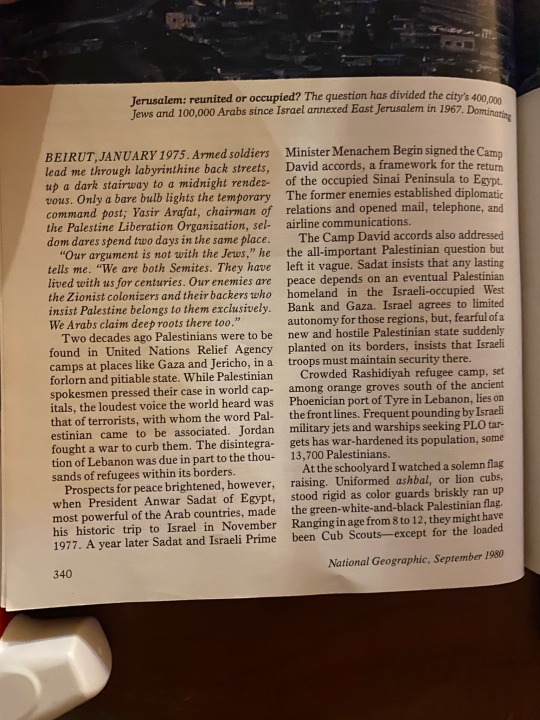
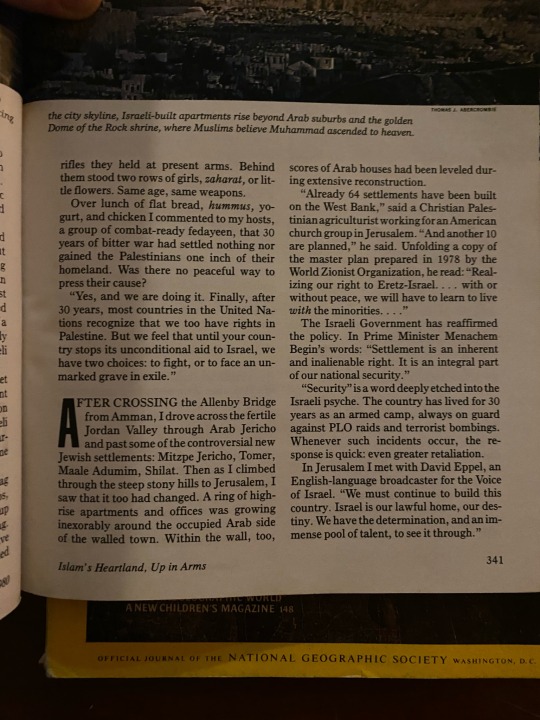
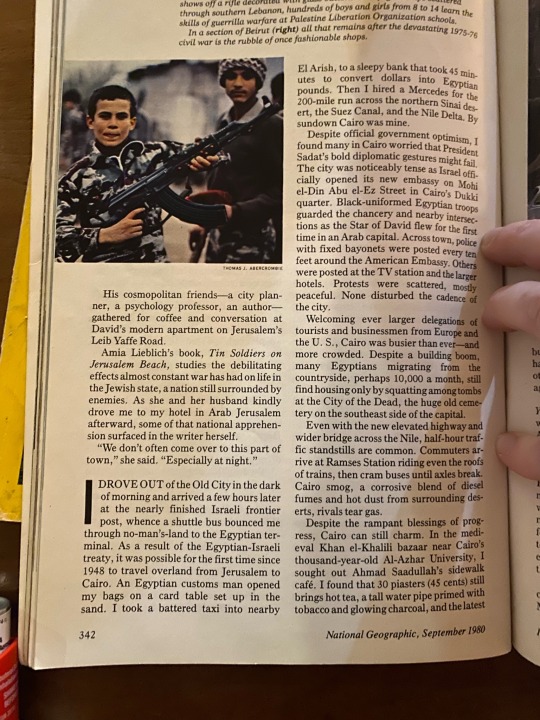
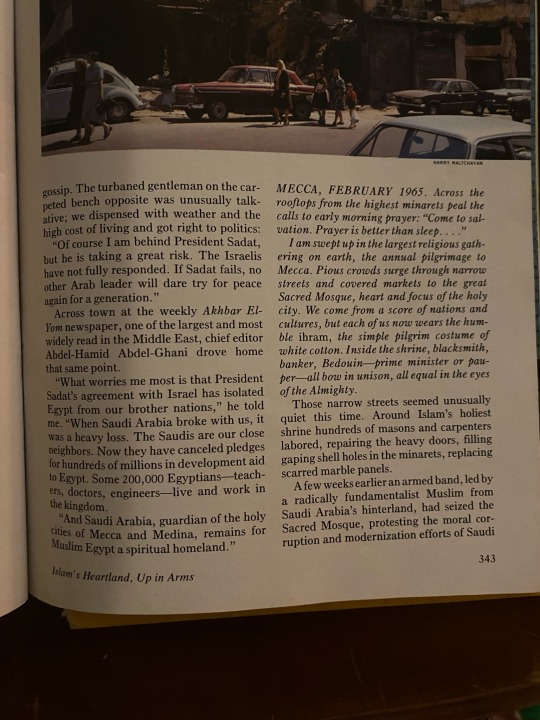
This magazine was published before my mom was born, and yet the sentiments have basically unchanged. An interesting look at the past, and more proof this didn’t start October 7th. (But imagine my followers already knew that)
#Palestine#free palestine#from the river to the sea palestine will be free#national geographic#September 1980
52 notes
·
View notes
Text
If anybody wanted to write a crossover between L.M. Montgomery's books, here is a little help with the ages of the characters (@no-where-near-hero maybe it will be a tiny help for your fanfic):
Anne Shirley - born on 5th of March 1865
Gilbert Blythe - born in 1862 or 1863
James Matthew "Jem" Blythe - born in July 1893
Walter Cuthbert Blythe - born in 1894
Anne "Nan" and Diana "Di" Blythe - born in 1896
Shirley Blythe - born in 1888*
Bertha Marilla "Rilla" Blythe - born in 1900*
Gerald "Jerry" Meredith - born 1894
Faith Meredith - born 1895
Una Meredith - born 1896
Thomas Carlyle "Carl" Meredith - born 1897
Jims Anderson - born in August of 1914
Emily Byrd Starr - born on 19th of May 1888
Ilse Burnley - born in 1888 (probably)
Perry Miller - born in 1887
Frederick "Teddy" Kent - 1887 or 1888
Dean Priest - born in 1865
Patricia "Pat" Gardiner - born in 1913
Rachel "Rue" Gardiner - born in 1919
Winnifred "Winnie" Gardiner - born in 1910
Sidney "Sid" Gardiner - born in 1912
Joseph"Joe" Gardiner - born in 1908
Hilary Gordon - born in 1911
Elizabeth "Bets" Wilcox - born in 1913
David Kirk - born around 1893
Jane Stuart - born in May 1918 or 1919
Valancy Stirling* - born 1883**
Barney Snaith - born 1877**
Cecilia "Cissy" - born 1886**
Olive Stirling - born 1884**
Gay Penhallow - born in 1904***
Nan Penhallow - born in 1904***
Roger Dark - born in 1890***
Donna Dark - born between 1894 and 1896***
Virginia Powell - born between 1894 and 1896***
Peter Penhallow - born between 1888 and 1890***
Margaret Penhallow - born 1872***
Brian Dark - born 1916***
Hugh Dark - born in 1887***
Joscelyn Penhallow: born between 1889-1892***
*In both Anne of Ingleside and Rainbow Valley Shirley is two years older than Rilla. But in Rilla of Ingleside, he turns eighteen few months before Rilla... it is pure chaos. Rilla was supposed to be nearly fourteen, according to the RV, in 1914, but she is nearly fifteen in RoI. So I apologize, but I had a lot of trouble here...
**The Blue Castle is the most difficult to place in time. It is set several years before it was published, and in my own opinion: before Tangled Web and Pat of Silver Bush. Why? Because of this reference: "This was before the day of bobs and was regarded as a wild, unheard-of proceeding—unless you had typhoid." (The Blue Castle). Bobs were already "in fashion" at the beginning of Pat of Silver Bush (so, in 1919, when Pat was six years old: it was said that Winnie wanted to have her hair bobbed) and in Tangled Web (which is set in 1922). Yet, the cars, motorboats and movie theaters were a rather common occurence in The Blue Castle's times. But... there might be an explanation. Valancy doesn't live on PEI, which might have been a little "behind" the rest of Canada, as far as modern technology went. It is my own personal opinion, but I think that it might be set just before the war, at the same time as the end Emily's Quest. I know that the clothes seem more "modern" in TBC, but Emily wore "a little sport suit" and dress that was described as followed "there was so little of it". Teddy and Perry both had cars, as sone of Ilse's cousins. I would say that the Blue Castle book might be set around 1912-1913. Still, the timeline is extremely elusive. Please, let me know, dear Blue Castle Book Club's members, what is your opinion? I think I have read some amazing discussion about TBC's timeline a long time ago, but if I remember correctly, everyone was certain that this novel was set post WWI (me included, until this very moment when I tried to place Pat and Tangled Web and remembered the "bob" quote). So I choose 1912 as the beginning of TBC, when Valancy was twenty-nine.
*** the ages of characters in Tangled Web:
"They were first cousins, who were born the same day and married the same day,--Donna to her own second cousin, Barry Dark, and Virginia to Edmond Powell--two weeks before they had left for Valcartier. Edmond Powell had died of pneumonia in the training camp, but Barry Dark had his crowded hour of glorious life somewhere in France." (Tangled Web).
"Virginia Powell, whose husband had been dead eight years and who was young and tolerably beautiful" (Tangled Web).
"Valcartier, Quebec was the primary training base for the First Canadian Contingent in 1914."
- from: https://www.warmuseum.ca/firstworldwar/history/going-to-war/canada-enters-the-war/training-at-valcartier/
So, from this I assumed that Virginia's husband died in 1914 (so Tangled Web is set in 1922-23). Gay is 18 at the beginning, so she would be born in 1904. If Donna and Virginia were 18-20 when they got married, they would be 26-28 (so still "young"). at the beginning. Peter was 14 when Donna was 8, so he'd be 32-34 at the beginning of the book (same age or a bit older than Roger). Hugh was 35 at the beginning. I guess Joscelyn was a bit younger- most of LMM's heroines are at least two years younger than their love interest. I'd say she might have been 20-23 when she got married, so she'd be around 30-33 at the beginning of the book. I would say Brian is about six years old - he doesn't seem to attend school yet, but is big enough to be sent to the harbour. Margaret Penhallow was about fifty at the beginning of the book.
So sorry that this post was rather long, but it was a great fun to write (even if it took me A LOT of time). Thank you for reading. Please, let me know if you agree. Any feedback will be very welcome!
#lm montgomery#emily of new moon#anne of green gables#tangled web book club#tangled web#aogg#blue castle book club#the blue castle#Pat of silver bush#Rilla of ingleside#Rainbow Valley#I know I haven't included marigold or kilmeny#But I don't know how to place Kilmeny tbh#And I need to reread marigold before i will be able to include her here#I think I will reblog or add them later on
53 notes
·
View notes